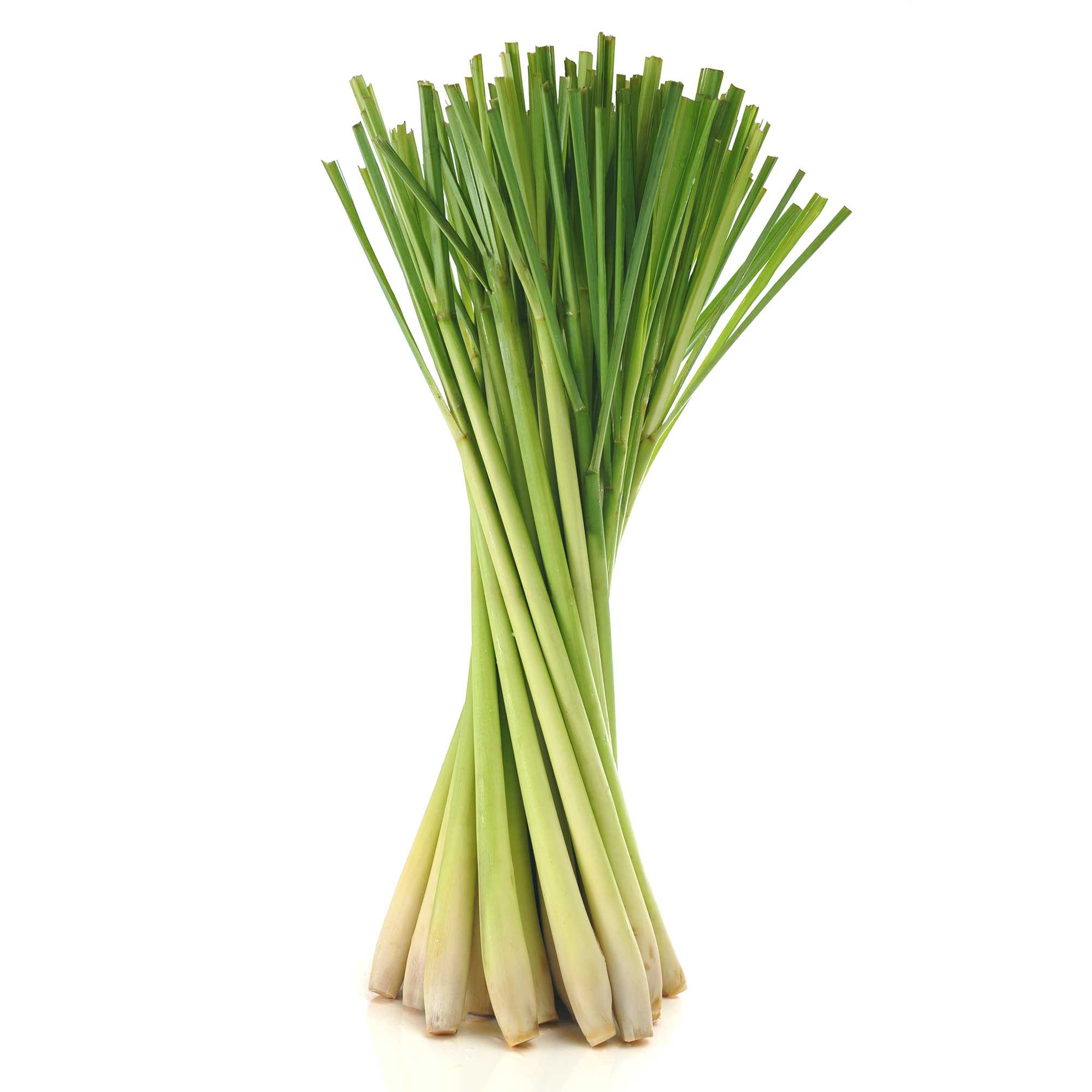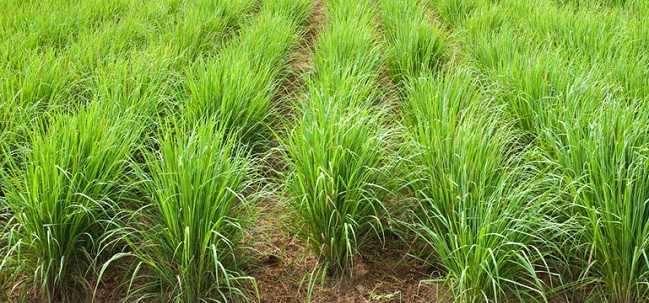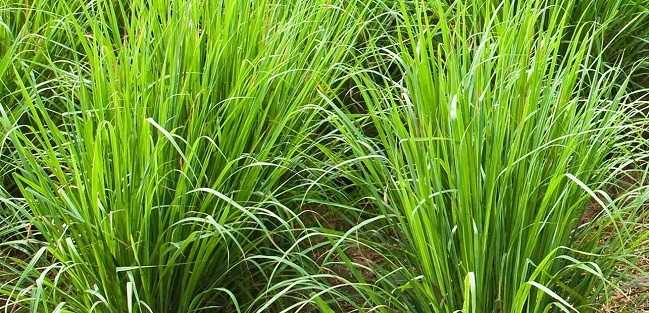Health Benefits Of Lemon Grass

Lemongrass is a strong herb that can be used to cure a variety of health issues, including sleeplessness, stomach, and respiratory problems, fever, as well as infections.
Lemongrass may enhance the immune system by acting as an anti-oxidant and warding against antibiotic-resistant Staphylococcus aureus.
It also might help control cholesterol, keep type 2 diabetes under control, and keep the skin healthy. It is widely used in aromatherapy and aids in the treatment of exhaustion, anxiety, and poor body odor.
Citrus lemongrass is a popular Thai seasoning that originates in Southeast Asia. Lemongrass is now widely grown in Africa, Australia, North and South America, and Europe as a natural cure for digestive difficulties, neurological problems, and high blood pressure.
Lemongrass, according to some reports, has antibacterial and antifungal effects. It's been used for centuries as a painkiller and a fever reducer.

Citral, an anti-inflammatory plant molecule found in lemongrass, is one of the herb's primary active ingredients. As a disinfectant and insect repellent additive in a wide range of consumer products, lemongrass extract is widely utilized as well.
Common Types of Lemon grass
There are about 50 different types of lemongrass found in the world. Vietnamese, Thai, and Cambodian dishes all use ornamental lemongrass. Teas, soups, curries, and other liquid beverages benefit from the addition of lemongrass because of the lemony flavor and scent it imparts. Lemongrass grows well in a warm, humid climate. Some of these types of lemongrass are very common:
#1. Jama Rosa
Lemongrass Jama Rosa is a hardy and more cold-tolerant cultivar. Because Jama Rosa grows so quickly, you can trim it multiple times over the 16-18 month growth period.
#2. Ornamental Lemongrass
Ornamental lemongrass is also referred to as West Indian Lemongrass as well as oil grass. The ornamental lemongrass grows thick clusters which usually gets to 3 feet in spread and 6 feet in height. Light green, flexible stems grow from the dense bunches.
#3. Pragati
Known as an East Indian type, Pragati is a tall-growing lemongrass variety. The oil-containing bulbous stem at the plant's base, near to the ground, has a dim purple bundle that forms around it. Pragati's oil content is lower than that of Sugandhi's.
#4. Citronella
Citronella oil is derived from a plant species known as citronella, mana grass, or nard grass. Citronella oil is commonly used as a repellant, flavoring agent as well as in the manufacture of perfumes and cosmetics. Split and replant citronella clusters in the late summer or early fall to increase your chances of success.
#5. Sugandhi
Another common lemongrass is Sugandhi, a varietal, which grows in a wide range of soil types. There is a red-stemmed form of sugandhi from India that contains the most oil.
#6. Praman
Praman is a medium-sized Lemongrass with a high oil content when compared to other types. Praman is a Northern Lemongrass type with vertical or erect leaves.
#7. Java Citronella
Known scientifically as Cymbopogonwinterianus, the Java Citronella grows on Indonesia's Java Island. Java Citronella forms dense, compact clusters with long, curved leaf stalks.
They have reddish-purple or yellow stems. Java Citronella cultivation needs a lot of moisture, sunlight as well as sandy-loam soil with a PH range of 5.8 to 8.0 for the best output.

Top Health Benefits of Lemongrass Tea
Because of its propensity to reduce blood sugar, green tea may be an effective additional treatment for diabetes. Lemongrass tea is also good for your skin and hair because of its anti-inflammatory and antioxidant properties.
#1. Improves Digestive Health
Lemongrass tea is an excellent natural cure for stomach cramps, upset stomach, and other digestive ailments. Lemongrass has been demonstrated in studies to be useful in curing stomach ulcers.
Aspirin-protecting benefits of lemongrass essential oil include protecting the stomach lining (regular use of aspirin can often cause gastric ulcers). The oil can also help with digestion.
#2. Aids Weight Loss
Tea made from lemongrass is low in caloric. As a result, you should include it in your diet if you're trying to slim it down.
In addition to filling you up, tea can help you avoid overeating. Drinking it throughout the day can help you control your appetite and avoid overeating.
Polyphenols in tea have been shown to boost energy expenditure and fat oxidation, both of which help with weight loss.
It can also be used to detox, which jump-starts your metabolism and makes it easier to lose weight. Aside from that, lemongrass tea, which is a natural diuretic, aids in the reduction of water weight.
#3. Helps Fight Cancer
Lemongrass extract has been demonstrated in tests to slow the progression of cancer, notably liver cancer, in its early stages. Citral, a lemongrass component, was discovered to cause breast cancer cell death.
Studies have also revealed that lemongrass extracts are a safe alternative to conventional cancer treatment. Although there isn't enough data to back up this claim, there are some who believe that lemongrass can help treat prostate cancer.
#4. Might Help In Diabetes Treatment
Lemongrass tea has been shown in certain trials to lower blood sugar levels, which is good for patients with diabetes. However, if you are already taking diabetes medication, make an appointment with your doctor very away.
The consumption of lemongrass tea has also been found in research to help lower fasting blood glucose levels. Lemongrass tea can help your pancreas function better by detoxifying your system.
#5. Regulates Blood Pressure
Lemongrass has been studied and found to be a traditional cure for high blood pressure. While drinking lemongrass tea has been shown to lower blood pressure slightly, a 2012 study indicated that drinking green tea had the opposite effect.
For the same reason, we advise people with cardiac issues to consume lemongrass tea with caution.
Author Bio
Contributor comprises full-time and freelance writers that form an integral part of the Editorial team of Hubslides working on different stages of content writing and publishing with overall goals of enriching the readers' knowledge through research and publishing of quality content.
Article Comments
No Comments!
At present there are zero comments on this article.
Why not be the first to make a comment?
Similar Articles
Sponsor
Search Articles
Experts Column
Latest Articles
Featured Articles
Most Popular Articles












